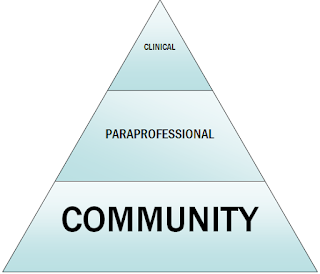- Education
- Childcare
- Jobs
- Personal health
- Chronic illness
- Diet
- Healthy families
A congregation choosing to improve the health of its members is no rare thing. People have always found ways to support each other in church organizations. Those in the so-called “helping professions” consider church groups a key “natural support.”
Unfortunately, we seem to know little about leveraging natural support relationships to improve health. The science plainly demonstrates our society’s failure to deliver success to the populations at the heart of social service mission. Service systems have directed countless dollars and resources at church groups in poor communities over the course of decades. Poverty, poor health, and trouble persist.
My hypothesis is that the American approach to health promotion and health improvement within church groups in high-poverty areas has been fundamentally incorrect. We treat natural supports as targets for professionals to manipulate. Congregations become the “primary target” of health interventions designed to reach intended “secondary targets,” meaning people with diseases or risk factors. Again and again, we measure the initial state of the target group, catalogue their troubles, and enumerate their risk factors and ailments. Later, we measure them again. At the end of our program, we announce that there has been some marginal statistical improvement. But that improvement never spreads to the population as a whole, and it’s hard to find actual living people who embody whatever improvement is announced.
What might we accomplish if we reversed the process? What might happen if we started with the desires and intentions of people in church congregations? What are their dreams? What are their strengths? What skills do they want to improve? What is the kind of life they envision for their children?
A population-centered starting point changes the direction of social service work. It turns the logic model inside out. What was once the “target population” is now the “action population.” The local service system becomes the “primary target.” Changing the service system changes the health of the action population, and impacts the broader population. The “secondary target” becomes the overall social and economic environment.
And here’s what’s most important. Delivering good results on personal goals actually improves a person’s life. Not some straw man, or statistical sort of person. A real person, with a real life, with blood in the veins. A person who has relationships, and perhaps even children, who influences other people every minute they draw breath.
--
Picture: WPA Church drawing
http://lva.omeka.net/items/show/139



